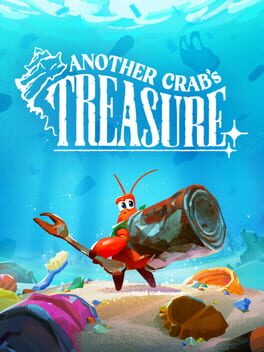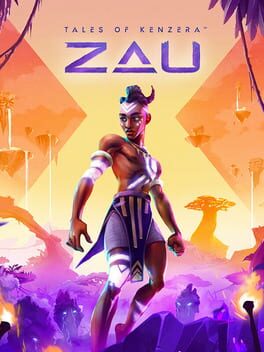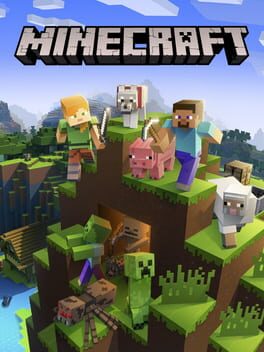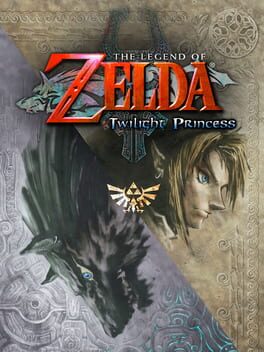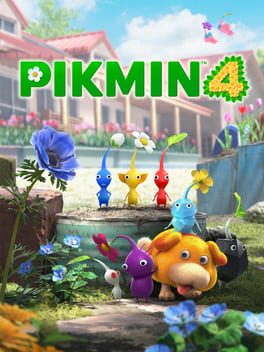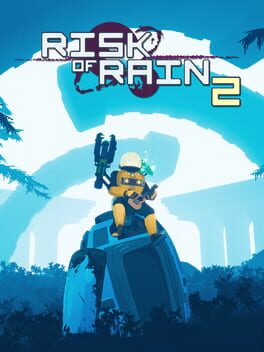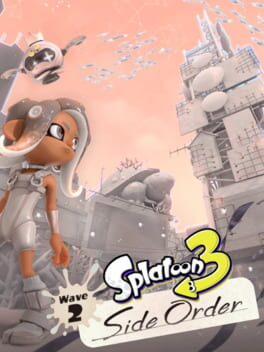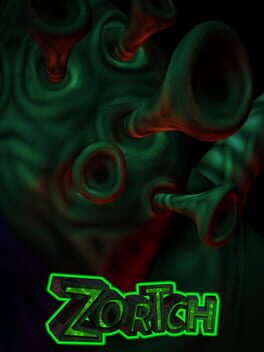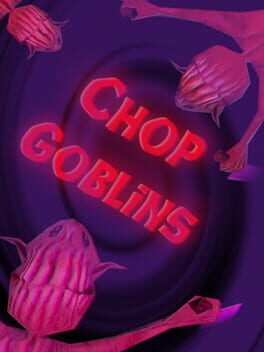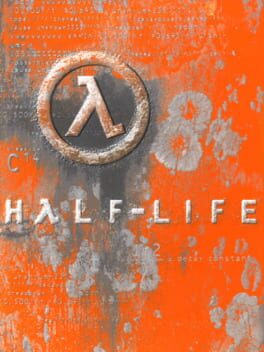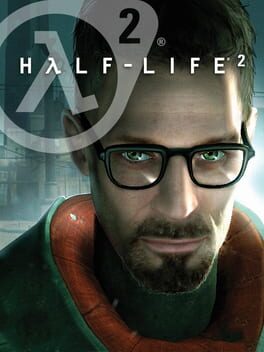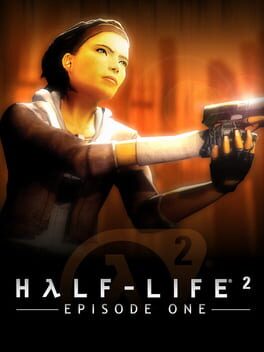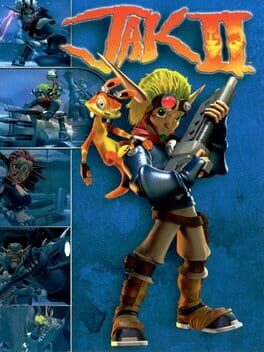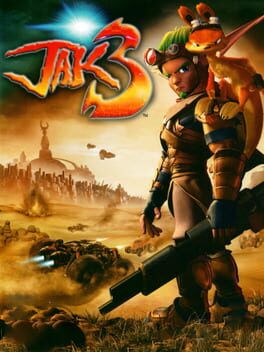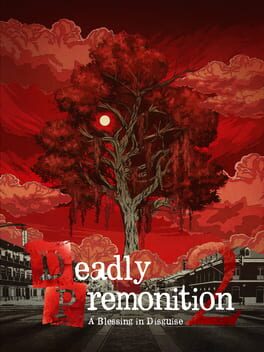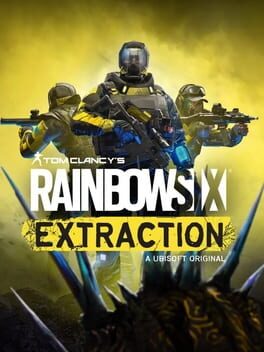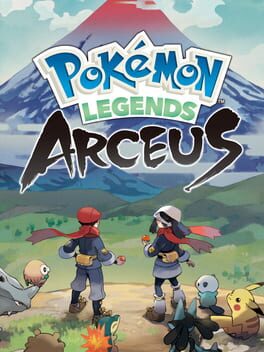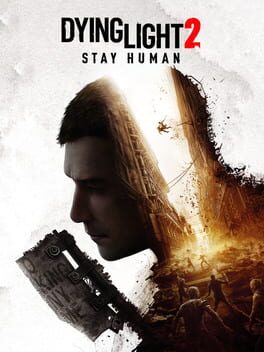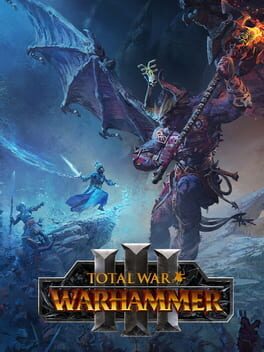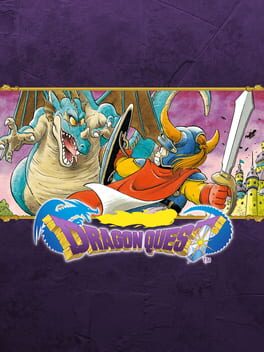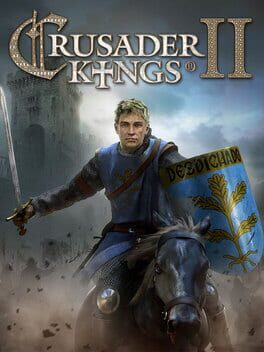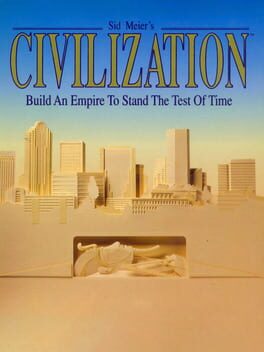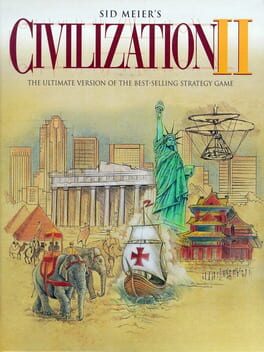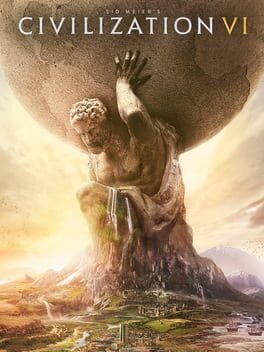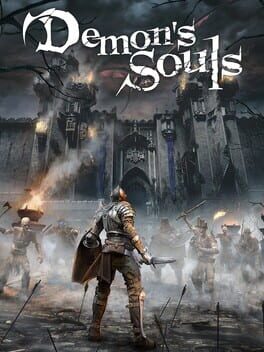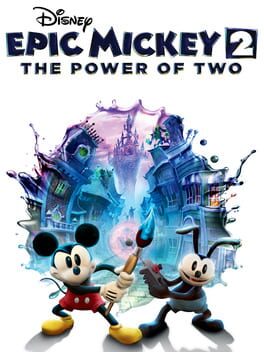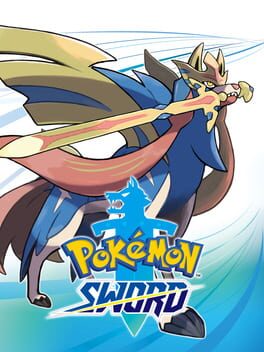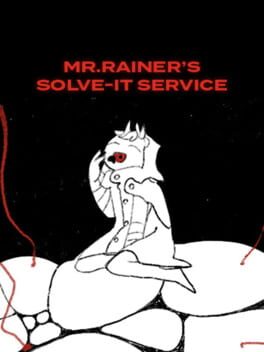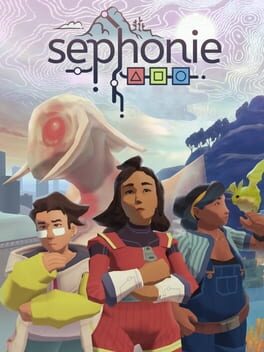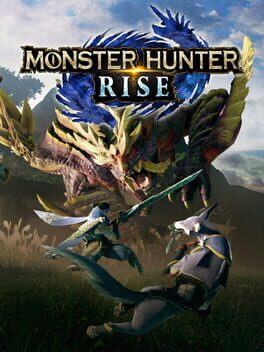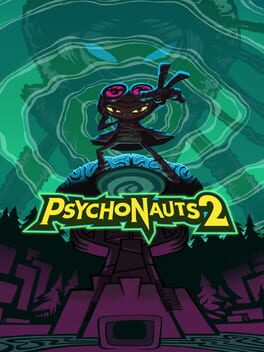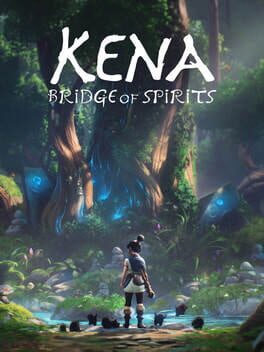Lv100Nerd
585 reviews liked by Lv100Nerd
Here is a list of every single joke review I considered making:
Shellden Ring
Floodborne
Dark Shoals
Lies of Sea
Black Myth Dugong
Shellkiro: Shallows Rise Twice
Coral Shell
I couldn't pick one.
Anyway, weird how the funny-ass crab game is the best soulslike ever made that wasn't made by fromsoft. A fun art direction, a surprisingly good story, a really cool shell mechanic, and some very strong boss encounters. It's certainly lacking polish in a few areas and the music is occasionally quite bad, but I had a really REALLY good time with this game!
Shellden Ring
Floodborne
Dark Shoals
Lies of Sea
Black Myth Dugong
Shellkiro: Shallows Rise Twice
Coral Shell
I couldn't pick one.
Anyway, weird how the funny-ass crab game is the best soulslike ever made that wasn't made by fromsoft. A fun art direction, a surprisingly good story, a really cool shell mechanic, and some very strong boss encounters. It's certainly lacking polish in a few areas and the music is occasionally quite bad, but I had a really REALLY good time with this game!
It feels so odd to play a video game and have an actual reaction to the game's story like wtf?? game stories can be good???
Anyway, some parts were a liiiittle unpolished, it's missing some of the bigger advancements of metroidvanias over the past few years, and some of the combat encounters were a bit stupid in their balancing, but for a first-time team, it feels so crazy to me that this game looks and sounds this good on top of having some really fun combat and platforming sequences and a genuinely touching story. I am incredibly impressed by this game and I can't wait to see where they go from here.
Anyway, some parts were a liiiittle unpolished, it's missing some of the bigger advancements of metroidvanias over the past few years, and some of the combat encounters were a bit stupid in their balancing, but for a first-time team, it feels so crazy to me that this game looks and sounds this good on top of having some really fun combat and platforming sequences and a genuinely touching story. I am incredibly impressed by this game and I can't wait to see where they go from here.
Minecraft
2011
Alan Wake Remastered
2021
Story and Characters
-Alan Wake is a fairly interesting character that is flawed, but also occasionally charming. He is a writer and can be arrogant at times, but he is also trying to save his wife and he is likable enough.
-Most of the side characters in the game are fairly basic and are not very fleshed out. Barry, Alan’s agent, is one of the main side characters and he is probably the most likable character in the game.
-Some of the side characters like Thomas Zane or Agent Nightingale could have used a bit more development as it is hard to truly understand them and their motivations unless you do research outside of the game.
-The story is an intriguing one that can be hard to follow at times, but it certainly feels unique. There are some aspects of the game that I feel were not addressed clearly enough, but for the most part the story is structured in a way that the player can follow. The ending feels very vague however and I would have liked something a bit more definitive.
Gameplay
-The gameplay is the weakest aspect of the game unfortunately. The combat can feel very tedious at times even though it is a unique idea to fight enemies with both guns and a flashlight. The combat starts feeling quite repetitive though because there is a lack of enemy variety and a lack of weapons or any sort of weapon upgrades. The guns don’t feel all that different and neither do the flashlights. Almost every chapter ends with you losing your weapons so you are constantly just getting the same weapons back again, but they all feel the same.
-The dodge mechanic in the game is very frustrating as the timing feels off on when you should do it. Oftentimes, you need to dodge well before the attack is near you which feels off.
-The enemy spawns are atrocious and are one of the worst aspects of the game. They will spawn behind you constantly and sometimes they spawn directly behind you so you are guaranteed to be hit. Sometimes the enemies will hit you two or three times in a row and you are unable to move until they finish attacking you. This leads to many frustrating deaths that feel cheap because the player didn’t do anything wrong.
-There are not really any puzzles or much gameplay outside of the basic combat, so the frustrations that come from the combat are magnified. The movement can also feel clunky at times and it is frustrating how quickly Alan will lose the ability to sprint and how much faster all of the enemies are than you.
-The game also has possessed objects that will throw themselves at you which also can lead to a lot of unavoidable damage as there is no way to destroy them all in time or avoid them. That is the biggest frustration with the game for me, there are too many times I would be hit or killed and it was because of bad gameplay mechanics, not necessarily because I made a mistake.
Side Content
-The game is mostly quite linear and there is no side content featured. The closest thing might be looking around the map for collectibles or extra ammo, but that doesn’t really count.
World/Level Design
-This is the game’s biggest strength as the map and town of Bright Falls are quite aesthetically pleasing and the game does a great job nailing that Northwestern United States vibe. Each location that you visit feels detailed and they all made sense to be in a small town. The game has a creepy, but beautiful atmosphere that works very well.
-One downside with the level design is that there are often areas that are quite large that the player can explore, but they don’t often have any purpose. The game gives you plenty of ammo and resources, so you don’t really feel a need to explore, but I also didn’t like the feeling of skipping over content. This issue was particularly prominent when you are in the car and can get in and out of your vehicle whenever you want. There are many locations you drive past on your way to your final destination and it can be hard to tell what is worth stopping by and what should be skipped.
Graphics, Music and Glitches
-When playing the remaster of Alan Wake I did not encounter any major bugs which was great.
-The graphics for the environments are good and the character models in this version have been updated from the original so they do look better, but obviously still worse than a new game released recently. I wouldn’t say any of the visuals are anything too remarkable, but it is a good looking remaster that allows the game to hold up pretty well in 2023.
-The music for the game is rather good and adds to the ambience and danger of the story. The soundtrack rarely ever really stood out to me as anything too incredible, but it complimented the game well.
Main Positives of the Game
-The setting of the game and the overall vibes of a small town in Washington really worked for me and it made the game enjoyable even when the combat was frustrating.
-The story is very unique and while at times it was a bit too convoluted, it managed to remain interesting throughout the game and I enjoyed following it.
-I do like how unique this game is with its meta narrative, some fun characters and a different combat system using light, there is nothing out there quite like it. This does not mean the game is amazing, but I like to see games do something different from most other games out there.
Main Negatives of the Game
-The combat can be repetitive at times and also very frustrating. The enemy spawns are awful and will often leave you being hit or killed without you doing anything wrong. The dodge feels a bit janky and does not work well when you are being attacked by multiple enemies.
-The story can be a bit too hard to follow at times and does not really wrap up in a way that feels satisfactory.
-Some characters feel underdeveloped and their motivations are not fully clear. For example, Agent Nightingale is relentlessly hunting Alan Wake, but it is not really clear why and I didn’t find out until I looked up more about his character after I beat the game. It could be that I missed a document that explained his motivations, but for a character that is as prominent as he is, I think his motivations should’ve been more clear.
-There is not a lot of enemy variety which again leads to the repetition with the combat.
-Large areas that can be explored, but the player does not always know when they should be or do they have much incentive to do so.
Overall Score: 7/10
-Alan Wake is a fairly interesting character that is flawed, but also occasionally charming. He is a writer and can be arrogant at times, but he is also trying to save his wife and he is likable enough.
-Most of the side characters in the game are fairly basic and are not very fleshed out. Barry, Alan’s agent, is one of the main side characters and he is probably the most likable character in the game.
-Some of the side characters like Thomas Zane or Agent Nightingale could have used a bit more development as it is hard to truly understand them and their motivations unless you do research outside of the game.
-The story is an intriguing one that can be hard to follow at times, but it certainly feels unique. There are some aspects of the game that I feel were not addressed clearly enough, but for the most part the story is structured in a way that the player can follow. The ending feels very vague however and I would have liked something a bit more definitive.
Gameplay
-The gameplay is the weakest aspect of the game unfortunately. The combat can feel very tedious at times even though it is a unique idea to fight enemies with both guns and a flashlight. The combat starts feeling quite repetitive though because there is a lack of enemy variety and a lack of weapons or any sort of weapon upgrades. The guns don’t feel all that different and neither do the flashlights. Almost every chapter ends with you losing your weapons so you are constantly just getting the same weapons back again, but they all feel the same.
-The dodge mechanic in the game is very frustrating as the timing feels off on when you should do it. Oftentimes, you need to dodge well before the attack is near you which feels off.
-The enemy spawns are atrocious and are one of the worst aspects of the game. They will spawn behind you constantly and sometimes they spawn directly behind you so you are guaranteed to be hit. Sometimes the enemies will hit you two or three times in a row and you are unable to move until they finish attacking you. This leads to many frustrating deaths that feel cheap because the player didn’t do anything wrong.
-There are not really any puzzles or much gameplay outside of the basic combat, so the frustrations that come from the combat are magnified. The movement can also feel clunky at times and it is frustrating how quickly Alan will lose the ability to sprint and how much faster all of the enemies are than you.
-The game also has possessed objects that will throw themselves at you which also can lead to a lot of unavoidable damage as there is no way to destroy them all in time or avoid them. That is the biggest frustration with the game for me, there are too many times I would be hit or killed and it was because of bad gameplay mechanics, not necessarily because I made a mistake.
Side Content
-The game is mostly quite linear and there is no side content featured. The closest thing might be looking around the map for collectibles or extra ammo, but that doesn’t really count.
World/Level Design
-This is the game’s biggest strength as the map and town of Bright Falls are quite aesthetically pleasing and the game does a great job nailing that Northwestern United States vibe. Each location that you visit feels detailed and they all made sense to be in a small town. The game has a creepy, but beautiful atmosphere that works very well.
-One downside with the level design is that there are often areas that are quite large that the player can explore, but they don’t often have any purpose. The game gives you plenty of ammo and resources, so you don’t really feel a need to explore, but I also didn’t like the feeling of skipping over content. This issue was particularly prominent when you are in the car and can get in and out of your vehicle whenever you want. There are many locations you drive past on your way to your final destination and it can be hard to tell what is worth stopping by and what should be skipped.
Graphics, Music and Glitches
-When playing the remaster of Alan Wake I did not encounter any major bugs which was great.
-The graphics for the environments are good and the character models in this version have been updated from the original so they do look better, but obviously still worse than a new game released recently. I wouldn’t say any of the visuals are anything too remarkable, but it is a good looking remaster that allows the game to hold up pretty well in 2023.
-The music for the game is rather good and adds to the ambience and danger of the story. The soundtrack rarely ever really stood out to me as anything too incredible, but it complimented the game well.
Main Positives of the Game
-The setting of the game and the overall vibes of a small town in Washington really worked for me and it made the game enjoyable even when the combat was frustrating.
-The story is very unique and while at times it was a bit too convoluted, it managed to remain interesting throughout the game and I enjoyed following it.
-I do like how unique this game is with its meta narrative, some fun characters and a different combat system using light, there is nothing out there quite like it. This does not mean the game is amazing, but I like to see games do something different from most other games out there.
Main Negatives of the Game
-The combat can be repetitive at times and also very frustrating. The enemy spawns are awful and will often leave you being hit or killed without you doing anything wrong. The dodge feels a bit janky and does not work well when you are being attacked by multiple enemies.
-The story can be a bit too hard to follow at times and does not really wrap up in a way that feels satisfactory.
-Some characters feel underdeveloped and their motivations are not fully clear. For example, Agent Nightingale is relentlessly hunting Alan Wake, but it is not really clear why and I didn’t find out until I looked up more about his character after I beat the game. It could be that I missed a document that explained his motivations, but for a character that is as prominent as he is, I think his motivations should’ve been more clear.
-There is not a lot of enemy variety which again leads to the repetition with the combat.
-Large areas that can be explored, but the player does not always know when they should be or do they have much incentive to do so.
Overall Score: 7/10
Demon's Souls
2009
Ok
Elden Ring, is the nice boy in class, he has all the good grades, he's not particularly ugly, he's cultivated, he'll likely gonna get into a good university once he's gonna graduate, he seems to have no flaws, except one, he's painfully boring in its flawlessness
Demon's Souls on the other hand, he's the bad boy , he's dark, sinister, a bit cringe , he has black hair, he makes barely passable poetry , he smokes marijuana and is involved with several case of high school crime, he always brings a guitar and listen to 21 pilot on his airpods, not the kinda guy you should get interrested in, he looks silly , he looks like a fucking looser, he thinks he's goat, but he's not goat, he's just a piece of shit edgy kids and oh my god I hate this guy, but one day you go to a party
Who did you end up in bed with ? That's right , not fucking ER, he's too good for this, It's DeS, you woke up next morning, and he fucked you and you look past the bed border and your mom is lying on the floor , fucked like she never has been before. Then he wokes up with pancackes, kiss you goodbye and leaves you with a teen pregnancy he's never gonna act upon. But the memory of such an experience will last with you for the rest of your goddamn life
Elden Ring, is the nice boy in class, he has all the good grades, he's not particularly ugly, he's cultivated, he'll likely gonna get into a good university once he's gonna graduate, he seems to have no flaws, except one, he's painfully boring in its flawlessness
Demon's Souls on the other hand, he's the bad boy , he's dark, sinister, a bit cringe , he has black hair, he makes barely passable poetry , he smokes marijuana and is involved with several case of high school crime, he always brings a guitar and listen to 21 pilot on his airpods, not the kinda guy you should get interrested in, he looks silly , he looks like a fucking looser, he thinks he's goat, but he's not goat, he's just a piece of shit edgy kids and oh my god I hate this guy, but one day you go to a party
Who did you end up in bed with ? That's right , not fucking ER, he's too good for this, It's DeS, you woke up next morning, and he fucked you and you look past the bed border and your mom is lying on the floor , fucked like she never has been before. Then he wokes up with pancackes, kiss you goodbye and leaves you with a teen pregnancy he's never gonna act upon. But the memory of such an experience will last with you for the rest of your goddamn life
Persona 3 Reload
2024
One of the most beautiful games I have ever played in remake form. I have played the original and loved the story, but the gameplay wasn't my favorite thing in the world. However, this remake changed many things, including the gameplay, and made some scenes even more beautiful and more impactful that I could've never imagined to be feasible. Everything that I loved from Persona 3 FES transferred over to the remake along with new scenes and content and while this game made me re-experience a story that I really liked before, it was different this time. My life had changed. The themes and characters resonated with me so closely this time in my life that I was holding back my emotions throughout the game with how relatable they are and how much I understood them. This game was just different and I will never forget this experience. Thank you Persona 3 and thank you Atlus for remaking this beautiful story.
Pikmin 4
2023
This is maybe more of a review of the concept of 'dandori' than it is strictly a review of the game, Pikmin 4, a mere vessel for that ethos.
Sometimes there simply isn't a word for the type of work a work of art is. Attempting to take genre classification seriously leads to either the insufficiently academic and endlessly debatable, or mashing together words into meaningless ad-libs. Is Pikmin a puzzle-game? Is it a puzzle real-time strategy with survival game elements? Probably, but neither of these things say much about what the game is. There's no game it's particularly *-like either. We laughed when Hideo Kojima coined the 'strand-type' game, but sometimes, that's all you can do.
The word that the developers of Pikmin 4 decided to use to describe their game is 'dandori', and it's a word that the localizers of Pikmin 4 struggle to translate. Broadly speaking, it's left as is. They describe it in-game as "[organizing] tasks strategically and working effectively to execute plans", which is not inaccurate, but also isn't exactly helpful either. However, the brilliance of Pikmin, and of this game in particular, is that to understand dandori, you don't need words. Pikmin is a game built to teach it to you, the way that Mario teaches you timing and spatial analysis, the way XCOM teaches you to manage risk.
If I were to take a stab at explaining it, dandori is about time management in a workplace. In that workplace, you have tasks, and workers. Those workers take time to complete those tasks, which are varying in nature, and spread out across the workplace. How can you complete as much of what you need to get done as possible before the day is over? Well, you might consider;
- Avoiding idleness. Time spent not working is time wasted (fortunately, in Pikmin your workers do not have needs and never tire, so any ethical concerns with this are neatly sidestepped)
- Knowing your workers, and assigning them the tasks they are best suited for. (Pikmin are pleasingly color-coded, and as of Pikmin 4, have diverse and overlapping strengths. They are also, while error-prone, perfectly obedient)
- Prioritizing tasks that make future tasks easier (You start each day surrounded by a tempting bouquet of flowers, a quick method of bolstering your Pikmin count)
As you can see, the answer is not a number, or a silver bullet. It is a series of principles, applied to each new situation as necessary, taught directly through simply playing the game. The answer is dandori.
And dandori is good. Let's assume, for a moment, that there is an inherent joy in the efficient completion of tasks - or at least, that you're the kind of person who thinks so. Pikmin 4 is a wonderful game for getting a lot of stuff done. Your ultimate goals are very straight forward, but the means by which you achieve them involve many different obstacles, cleanly broken down into assignable, varying tasks. They sit there, waiting for you to come and untangle them, wrapped in an overall game structure that wields a gentle, but unwavering time pressure to urge you onwards without ever forcing you to take drastic, unplanned action. That inherent joy I mentioned is found here in spades, and presented to the player with the immediacy typical of Nintendo's flagship titles - aside from a few minor quibbles with controls and pacing.
(There is an awful lot of talking throughout the game, which is time spent not doing dandori. I also found that it was harder than I would've wanted to send more Pikmin to help with a task than were required, which was noticeable, because that is a something you consider doing any time you do literally anything)
These small things cannot keep Pikmin 4 from being an outstanding, enjoyable adventure, that's simple and intuitive to get started with. The Nintendo design philosophy of simplifying player actions and pushing the complexity out into the world works wonders here. Assigning tasks to workers in most any game is at least a couple of interactions. Here, you just mash one button to throw your lil guys at the thing you want until it starts happening. Feedback on the progress of tasks is immediate and clear. Outside of some of the more challenging instances of combat, thinking about something is as good as doing it.
There's next to no barriers between the player and their engagement with the organisational thinking that dandori benefits.
In truth, every Pikmin game has been about dandori, even if the term was freshly coined for the fourth. Every Pikmin game changes the things around that core concept - new tasks, new workers, varying degrees of co-operative gameplay - but dandori has always been there. In all three prior games, you are explicitly graded on how quickly you completed your tasks, which is a direct consequence of how well you managed your workforce, which can only be improved through the application of the principles of dandori. Though the consequences of working too inefficiently have perhaps become gentler in recent games, it is still the thing that drives the player forward.
This is the sort of thing Nintendo has always done, for better or worse. Take some gameplay that's fun and approachable, put class-leading kid-friendly character design on it, and spend the next two or three decades examining it in new contexts, finding new ways to get at that core. Here, in Pikmin, that core is not movement, or combat, or even exploration.It's not any of the actions you perform in-game, though those haven't needed to change much over two decades. The core is the philosophy of dandori, how you think about the actions you're performing in that broader, more malleable context. And unlike previous Pikmin games, Pikmin 4 finds a way to demonstrate how it comes from outside the world of games, exists wherever work and organisation do.
See, Pikmin 4 is actually about half a dozen Pikmin games. Or, it's more like one really big Pikmin game, with a bunch of smaller auxiliary games in its orbit. Each game is presented to you piecemeal as you progress through the story, one level at a time, spread out through a larger story. Most of them are even optional, if you don't like what they're cooking. But all of them, again, rely on dandori. Whether it's a compressed, five-minute version of the base experience, or a survival horror wave defense, or messy competitive battles, you use the same core principles in each and every additional game. Where a game series might normally take entry after entry to explore its core conceit so thoroughly and from so many angles, Pikmin 4 leaps past its predecessors to do it in one. Not only does it teach you dandori - it universalizes it.
That's the wonder of Pikmin 4. It's not that there's so much of it, or that it's so lovingly rendered. It's that it really, truly wants to teach you how fun it can be to make and execute a plan. It wants you to learn dandori, and it will gently hold your hand and lead you directly to it, if you let it. It'll show you dandori from each of its distinct perspectives, whichever ones you find fun enough to dig into. If you're really taking to it, it won't hesitate to let you take the challenge as far as you want. 'How could you apply these concepts in your daily life?' Pikmin 4 asks, in one of many load screen tooltips. Once you've played the game, it might be hard not to look for answers to that question
Sometimes there simply isn't a word for the type of work a work of art is. Attempting to take genre classification seriously leads to either the insufficiently academic and endlessly debatable, or mashing together words into meaningless ad-libs. Is Pikmin a puzzle-game? Is it a puzzle real-time strategy with survival game elements? Probably, but neither of these things say much about what the game is. There's no game it's particularly *-like either. We laughed when Hideo Kojima coined the 'strand-type' game, but sometimes, that's all you can do.
The word that the developers of Pikmin 4 decided to use to describe their game is 'dandori', and it's a word that the localizers of Pikmin 4 struggle to translate. Broadly speaking, it's left as is. They describe it in-game as "[organizing] tasks strategically and working effectively to execute plans", which is not inaccurate, but also isn't exactly helpful either. However, the brilliance of Pikmin, and of this game in particular, is that to understand dandori, you don't need words. Pikmin is a game built to teach it to you, the way that Mario teaches you timing and spatial analysis, the way XCOM teaches you to manage risk.
If I were to take a stab at explaining it, dandori is about time management in a workplace. In that workplace, you have tasks, and workers. Those workers take time to complete those tasks, which are varying in nature, and spread out across the workplace. How can you complete as much of what you need to get done as possible before the day is over? Well, you might consider;
- Avoiding idleness. Time spent not working is time wasted (fortunately, in Pikmin your workers do not have needs and never tire, so any ethical concerns with this are neatly sidestepped)
- Knowing your workers, and assigning them the tasks they are best suited for. (Pikmin are pleasingly color-coded, and as of Pikmin 4, have diverse and overlapping strengths. They are also, while error-prone, perfectly obedient)
- Prioritizing tasks that make future tasks easier (You start each day surrounded by a tempting bouquet of flowers, a quick method of bolstering your Pikmin count)
As you can see, the answer is not a number, or a silver bullet. It is a series of principles, applied to each new situation as necessary, taught directly through simply playing the game. The answer is dandori.
And dandori is good. Let's assume, for a moment, that there is an inherent joy in the efficient completion of tasks - or at least, that you're the kind of person who thinks so. Pikmin 4 is a wonderful game for getting a lot of stuff done. Your ultimate goals are very straight forward, but the means by which you achieve them involve many different obstacles, cleanly broken down into assignable, varying tasks. They sit there, waiting for you to come and untangle them, wrapped in an overall game structure that wields a gentle, but unwavering time pressure to urge you onwards without ever forcing you to take drastic, unplanned action. That inherent joy I mentioned is found here in spades, and presented to the player with the immediacy typical of Nintendo's flagship titles - aside from a few minor quibbles with controls and pacing.
(There is an awful lot of talking throughout the game, which is time spent not doing dandori. I also found that it was harder than I would've wanted to send more Pikmin to help with a task than were required, which was noticeable, because that is a something you consider doing any time you do literally anything)
These small things cannot keep Pikmin 4 from being an outstanding, enjoyable adventure, that's simple and intuitive to get started with. The Nintendo design philosophy of simplifying player actions and pushing the complexity out into the world works wonders here. Assigning tasks to workers in most any game is at least a couple of interactions. Here, you just mash one button to throw your lil guys at the thing you want until it starts happening. Feedback on the progress of tasks is immediate and clear. Outside of some of the more challenging instances of combat, thinking about something is as good as doing it.
There's next to no barriers between the player and their engagement with the organisational thinking that dandori benefits.
In truth, every Pikmin game has been about dandori, even if the term was freshly coined for the fourth. Every Pikmin game changes the things around that core concept - new tasks, new workers, varying degrees of co-operative gameplay - but dandori has always been there. In all three prior games, you are explicitly graded on how quickly you completed your tasks, which is a direct consequence of how well you managed your workforce, which can only be improved through the application of the principles of dandori. Though the consequences of working too inefficiently have perhaps become gentler in recent games, it is still the thing that drives the player forward.
This is the sort of thing Nintendo has always done, for better or worse. Take some gameplay that's fun and approachable, put class-leading kid-friendly character design on it, and spend the next two or three decades examining it in new contexts, finding new ways to get at that core. Here, in Pikmin, that core is not movement, or combat, or even exploration.It's not any of the actions you perform in-game, though those haven't needed to change much over two decades. The core is the philosophy of dandori, how you think about the actions you're performing in that broader, more malleable context. And unlike previous Pikmin games, Pikmin 4 finds a way to demonstrate how it comes from outside the world of games, exists wherever work and organisation do.
See, Pikmin 4 is actually about half a dozen Pikmin games. Or, it's more like one really big Pikmin game, with a bunch of smaller auxiliary games in its orbit. Each game is presented to you piecemeal as you progress through the story, one level at a time, spread out through a larger story. Most of them are even optional, if you don't like what they're cooking. But all of them, again, rely on dandori. Whether it's a compressed, five-minute version of the base experience, or a survival horror wave defense, or messy competitive battles, you use the same core principles in each and every additional game. Where a game series might normally take entry after entry to explore its core conceit so thoroughly and from so many angles, Pikmin 4 leaps past its predecessors to do it in one. Not only does it teach you dandori - it universalizes it.
That's the wonder of Pikmin 4. It's not that there's so much of it, or that it's so lovingly rendered. It's that it really, truly wants to teach you how fun it can be to make and execute a plan. It wants you to learn dandori, and it will gently hold your hand and lead you directly to it, if you let it. It'll show you dandori from each of its distinct perspectives, whichever ones you find fun enough to dig into. If you're really taking to it, it won't hesitate to let you take the challenge as far as you want. 'How could you apply these concepts in your daily life?' Pikmin 4 asks, in one of many load screen tooltips. Once you've played the game, it might be hard not to look for answers to that question

